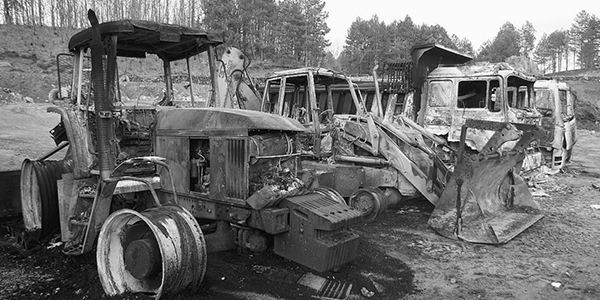Mining is one of the most viscerally destructive and horrific ways in which the dominant culture—industrial civilization—enacts its violence on the living world. As entirely and unequivocally destructive as this society is, few other industrial activities are as horrifically confronting as mining. Whole landscapes are cleared of life as communities—most often indigenous or poor—are forced from their homes. Mountains level to piles of barren rubble which leach countless poisons, scouring life from whole watersheds. Pits of unimaginable size are carved from the bones of the earth, leaving moonscapes in their wake.
Besides the immediate damage to the land at the site of operations, the destruction extends through the uses its products are put to. In this way, mining is crucial to the continued function of industrial civilization, supplying many of the raw materials that form the material fabric of industrial society. Steel, aluminum, copper, coal, tar sands bitumen, cement; the materials extracted through mining are central components of industrial civilization in an immediate and physical way. They are the building blocks of this society.
Fortunately, as is the way of things, where there is atrocity and brutalization, there is resistance. There has been a lot of militant anti-mining action happening recently; in the last few months alone there have been several inspiring incidents of people taking direct militant action against mining projects and infrastructure.

